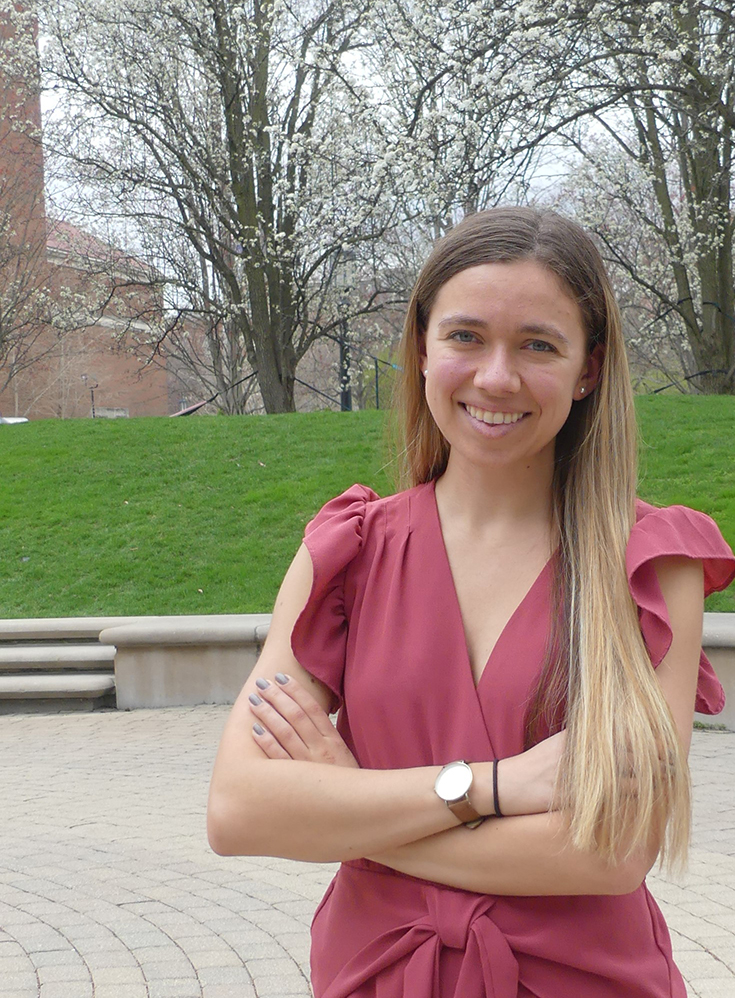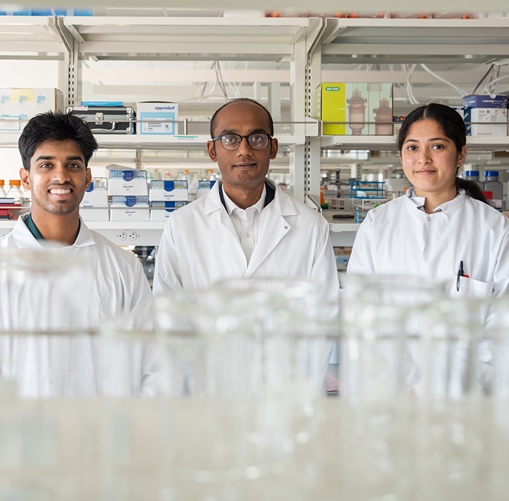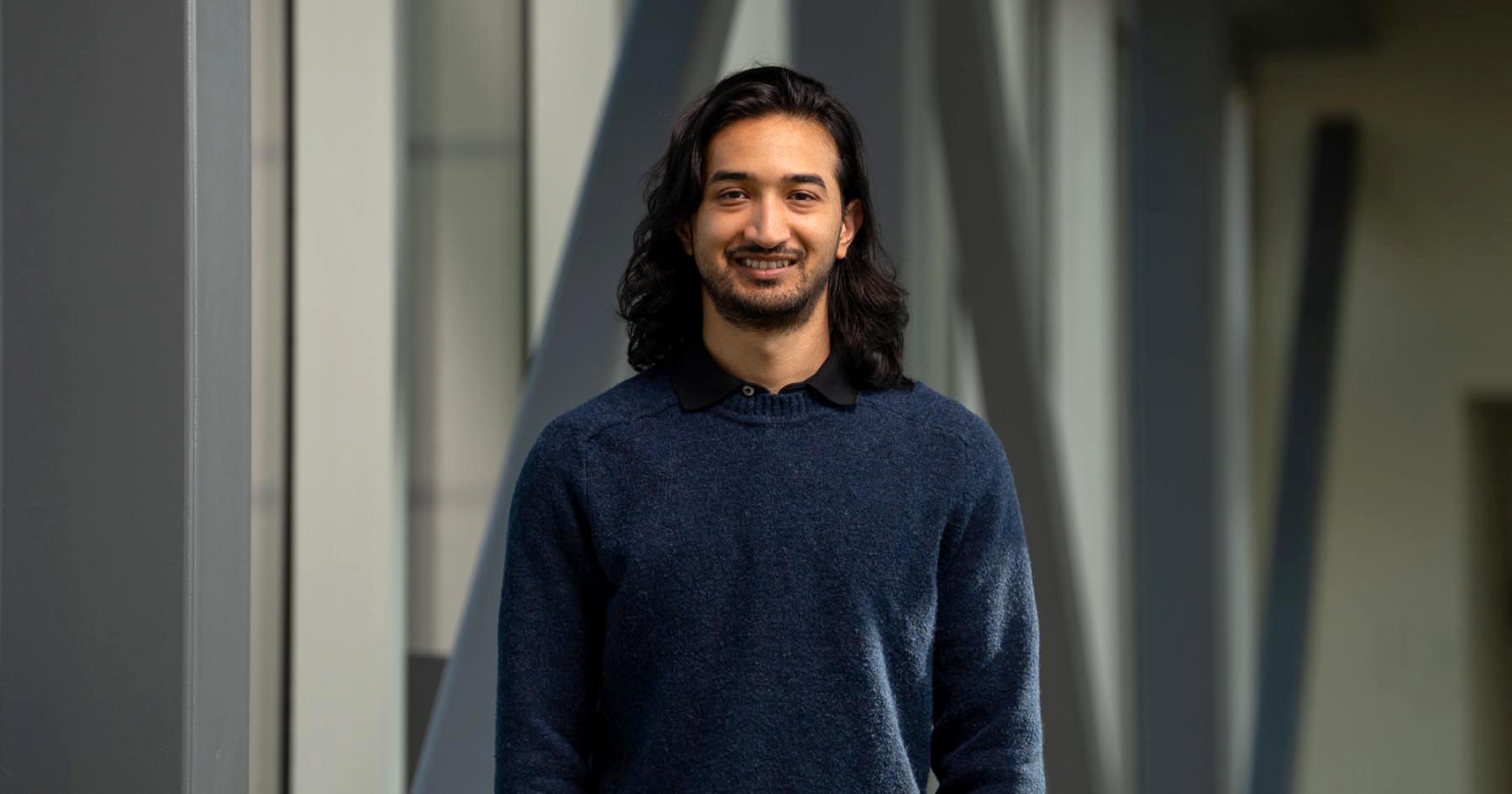Student Profile: Laura Barrett
Connections Define Dual Major’s College Career
By Jacob Kessens
Laura Barrett talked passionately about her trip to Peru and the connection she formed with Maria Isabel, an agricultural entrepreneur that Barrett met while she was there.
 Laura Barrett is all about making connections: between her two majors, with individuals in her program, and with students in other countries. Photo by Amber Cripps
Laura Barrett is all about making connections: between her two majors, with individuals in her program, and with students in other countries. Photo by Amber Cripps “She started this dairy that really makes an effort to raise their cows and sell their products in environmentally sustainable ways,” Barrett said, a senior agricultural communication major from Rockford, Ohio.
Barrett said that Isabel’s work inspired her, because it showed her what one person with a creative vision and passion can do. That was one of many connections that Barrett made just on that Peru trip. Barrett also made friends with Peruvian students who attended National Agrarian University in La Molina. Barrett said the Peruvian students were great to network with and they showed her first-hand what student life was like in Peru. The students were also able to serve as their translators on their excursions. Barrett connected with a lot of people in Peru.
Connections, both on her trip to Peru and in the greater Purdue community drive a lot of what Barrett does. Making connections is a big reason why agricultural communication is a major that works for her.
Barrett said she chose AgCom because it gave her the opportunity to connect the many different things that she is passionate about like agriculture, business, and being creative.
“It gives you the freedom to make your own path in the agricultural industry,” Barrett said. “It is not just exposing you to one thing, the course load lets you pick what you are most passionate about and run with it.”
Majoring in AgCom also made it possible for Barrett to pursue a double-major in agricultural economics.
“I started out with only AgCom and decided to add on AgEcon during my first semester. The two majors are very easy to combine, and a couple of the classes were able to overlap,” Barrett explained.
Within the AgCom program, Barrett has made many personal connections, which she said is very important to her. Her high school graduation class was less than 70, so she was used to knowing just about everyone on a personal level. Before she came to Purdue, she was unsure if she would be able to find those personal connections at such a large school, but she quickly found her home in the ASEC department.
“The ASEC department gives you small-time school feels while being able to provide all of the benefits of a large university,” Barrett explained.
During her time at Purdue, she also connected with her advisor, Mark Tucker, professor of agricultural communication. Barrett was a teaching assistant for one of courses.
“Dr. Tucker is an outstanding advisor and someone to lean on in stressful situations. He has helped me make hard decisions and encouraged me and believed in me when others didn't,” Barrett said.
When Barrett graduates, she said she wants to be able to find a career where she can get into the data analytics side of marketing and be an advocate for farmers.






